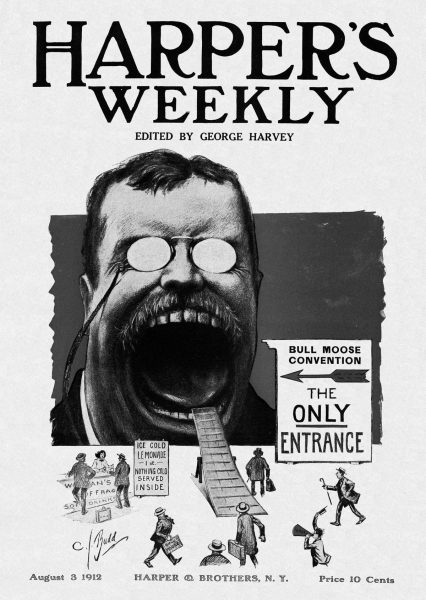The Virginia House of Delegate Elections: The Most Important Elections Of Which You’ve Never Heard
E-V (Emma) Banos ’20 believes that ratification of the Equal Rights Amendment is a necessary step towards equality.
The Nineteenth Amendment, which granted women the right to vote, was ratified in 1920 after decades of advocacy. Three years later, in 1923, another amendment known as the Equal Rights Amendment (ERA) was first introduced to Congress. It stated simply that “equality of rights under the law shall not be denied or abridged by the United States or by any state on account of sex.” Now, almost a century after the ratification of the 19th Amendment, the ERA is heartbreakingly close to being passed. And its fate has fallen on an unlikely candidate: the Virginia State Legislature.
The most popular form of amending the Constitution requires ratification from at least two-thirds of Congress and two-thirds of state legislatures. The ERA has cleared the congressional hurdle and needs only one more state to reach the 38 state requirement for ratification. ERA activists have long looked to Virginia to be that final state, and for a moment earlier this year, it seemed as if they were right. In January, the amendment flew across the Republican-controlled Virginia state senate with bipartisan support, but languished in the House of Delegates, missing ratification by a single vote.
This may not be the end of the ERA. As of this November 2019, every member of the House of Delegates was up for re-election. While recent elections across the country have trended towards the left, favoring democrats who focus on social reform, the election of a democratic majority was still not a guarantee. However, both chambers of the Virginia state legislature flipped blue in the recent elections, bringing a decisive democratic majority into legislature, and the possibility of enacting the Equal Rights Amendment. The official vote will take place early next year, and if the amendment passes, it would be exactly a century after the Nineteenth Amendment was ratified.
There has been debate about how valuable the amendment itself would be. While most agree that it is a necessary legal foothold for protecting women’s rights, some believe that it may not be an effective means of shifting the underlying cultural attitudes and structural issues that oppress women.
Isaac Rjavinski ’20 shares this view on the ERA. “I think we need broader societal change than just an amendment we pass and pat ourselves on the back for,” said Rjavinski. “We need a commitment to radicalism, not just a satisfaction with the palliative of reform politics.”
Others see it differently, arguing that the law needs to keep up with progressing cultural attitudes. “People think the fact that women should be equal is obvious, and that it doesn’t have to be stated,” said E-V (Emma) Banos ’20. Banos believes that the constitution should reflect what many Americans believe. “I think it’s important to have the knowledge that is in the hearts and minds of many Americans — that women deserve equality — to be enshrined in law,” said Banos.
“I think it’s important to have the knowledge that is in the hearts and minds of many Americans — that women deserve equality — to be enshrined in law,” said E-V (Emma) Banos.
When it comes time to vote for the ERA, it is important to remember that the amendment’s possible ratification would merely be one more step on the road towards equality. While its impact on society can’t be known, one thing is clear; if passed, the ERA would be an important symbol of progress in a time that desperately needs one.
Audrey Hill is a Copy Editor for the ‘Science Survey’ and a Groups Section Reporter for ‘The Observatory.’ She has always loved writing and storytelling,...











